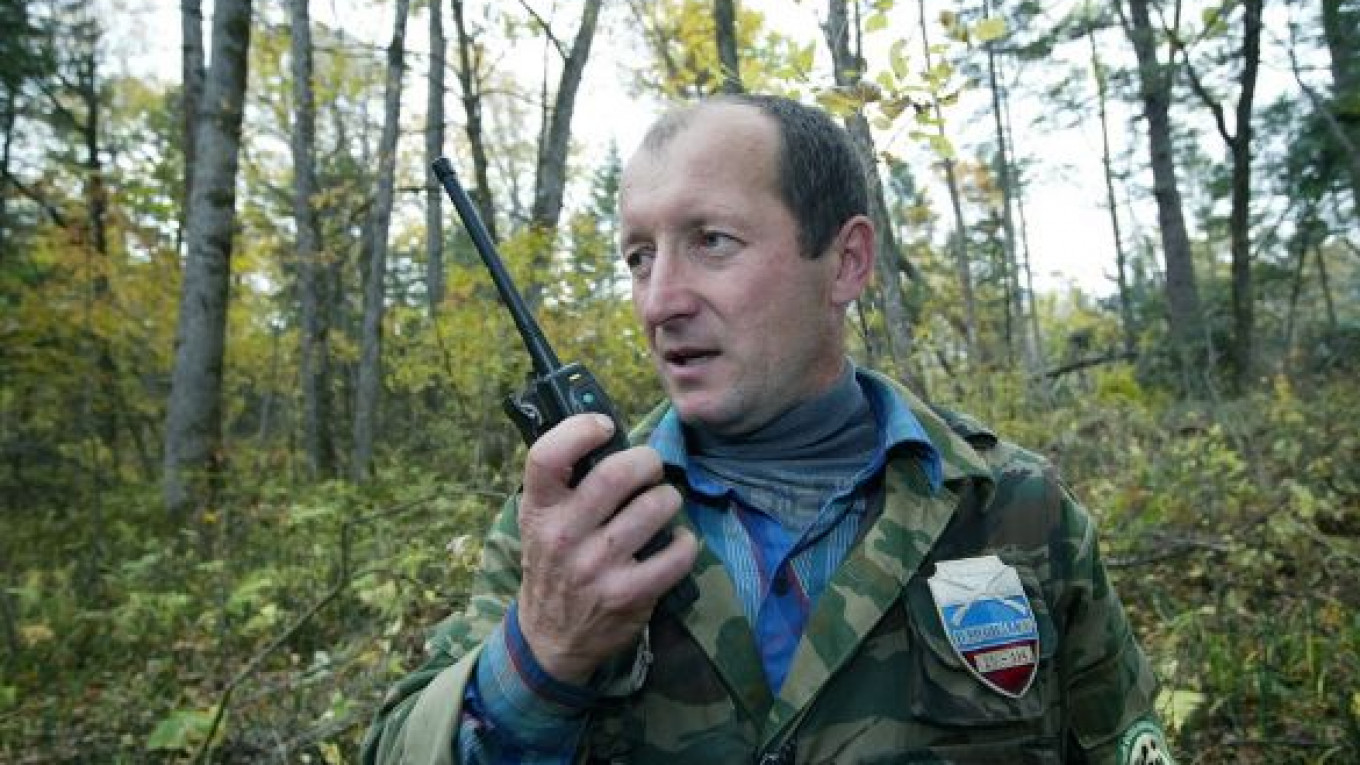The government will spend a total of 2.4 billion rubles ($82 million) on a targeted program to develop specific nature reserves across the country over the next three years, as part of an ambitious preservation project, Natural Resources Minister Yury Trutnev said Monday.
About 1.5 billion rubles will be spent on building infrastructure, with the remaining funds allotted for transportation and communications services aimed to monitor the territory of reserves and fight poaching, he said at a meeting with Prime Minister Vladimir Putin.
The ministry examined more than 200 specially protected natural areas to choose 12 of the highest priority to be developed by 2013, Trutnev said, as people currently have limited access to the country's nature reserves — which are poorly developed and have no appropriate infrastructure.
Financing will be provided for 10 nature reserves and two national parks, like Baikalo-Lensky and Baikalsky nature reserves on the coast of Lake Baikal, Vrangel Island located between the East Siberian and Chukchi seas and the Caucasus nature reserve.
"Work of such a scale has never been undertaken in Russia before," Trutnev said.
He also said his ministry plans to build about 180 museums, 98 recreation places, as well as 290 tourist routes in the nature reserves, which will allow the number of visitors to double to 12 million a year by 2013.
Putin said that visiting the nature reserves must be affordable for people with low incomes. Trutnev promised that prices would be "minimal."
Last year, Putin pushed to develop domestic ecological tourism in order to attract not only local residents but also visitors from abroad.
Trutnev said at the time that the country's national parks could be profitable, just like in the United States.
He complained that the Geyser Valley in the U.S. Yellowstone national park has 2 million visitors a year, while a similar valley in Russia's Kamchatka region has only 3,000 visitors annually.
National parks in the United States bring $14.5 billion a year, Trutnev said. "If we invest in national parks and nature reserves … we'll see this money return to the budget."
Meanwhile analysts said such projects in Russia are unlikely to bring high profit.
"Reaching a break-even point is the best that one can expect from such a project," said Yana Kuzina, head of the strategic consulting and valuation department at CB Richard Ellis.
National parks are designed to be cultural and ecological sites rather than sources of profit, she said by telephone.
Trutnev also asked to extend financing of the program through 2020, saying 800 million rubles will be needed annually to expand it to the country's about 200 other nature reserves after 2013.
Putin promised to discuss the issue at the presidium meeting.
A Message from The Moscow Times:
Dear readers,
We are facing unprecedented challenges. Russia's Prosecutor General's Office has designated The Moscow Times as an "undesirable" organization, criminalizing our work and putting our staff at risk of prosecution. This follows our earlier unjust labeling as a "foreign agent."
These actions are direct attempts to silence independent journalism in Russia. The authorities claim our work "discredits the decisions of the Russian leadership." We see things differently: we strive to provide accurate, unbiased reporting on Russia.
We, the journalists of The Moscow Times, refuse to be silenced. But to continue our work, we need your help.
Your support, no matter how small, makes a world of difference. If you can, please support us monthly starting from just $2. It's quick to set up, and every contribution makes a significant impact.
By supporting The Moscow Times, you're defending open, independent journalism in the face of repression. Thank you for standing with us.
Remind me later.






